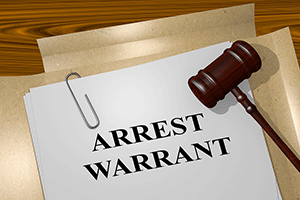Hillsborough County Florida Warrant Search
Running a warrant search can be a intimidating task, especially if you think you have one. in Hillsborough County Florida, this is a simple task, as there are multiple online resources are available to help you access this information. Understanding what type of warrant you have and how to verify it is the first step in this process. Various county and state online databases we will cover, allow the public to find out with a simple name search.
In the following sections we will provide you with a comprehensive understanding of how to run a warrant search, the different types, and how to handle them. Each type of warrant carries its own set of legal and personal challenges. Proper handling, compliance, and timely resolution are necessary to avoid additional legal complications. Understanding these, their significance, and how to look them up is an important first step.
How to Run a Warrant Search in Hillsborough County
There are multiple ways to run a warrant search online, some offer more detailed information than others. The first step is to figure out if you want to lookup bench or arrest warrants. They are quite a bit different and different agencies manage these records, so identifying which type is a good first step. Then using the following methods, you can quickly find out if you, or someone you know has one.
1). County Sheriff: An effective method is to use the online search tools provided by the Hillsborough County Sheriff's Office in Tampa. They offer an online search tool that allows you to search for active warrants. It's user-friendly and provides quick results. You can search by name and date of birth, or the court issued warrant number.
2). County Court Clerk: The County Clerk's office, of the courthouse, allows you to confirm case records and court orders. They have an online platform to do so by name or case number. You can also contact them in person to run a bench or arrest warrant search.
3). FLDE Search: Another valuable resource is the Florida Department of Law Enforcement (FDLE). The FDLE provides a public platform for conducting a statewide wanted person's search. This is particularly useful if you want to run a Florida warrant search for the entire state, and not just one county.
4). Public Record Sites: Since warrants are part of the public record system in Florida, there are privately run websites that offer access to this information. A benefit of using these types of sites is you can also track down information statewide or nationwide and run a comprehensive criminal history report to find out every criminal conviction in someone's past.
** Each of these methods has its own advantages. Consider combining them for a more comprehensive search. This approach verifies that no information slips through the cracks. **
The Different Types of Warrants and Their Significance
Knowing and understanding the different types of warrants is important for understanding the specific legal situation at hand. Each type serves a specific purpose and has unique implications and consequences for the person involved. The consequences of having any type of outstanding warrant can be far-reaching. They might lead to unexpected arrests, often at inconvenient times or places. This makes understanding and addressing them promptly very important.
Arrest warrants are a criminal type issued by a judge when there's probable cause to believe someone has allegedly committed a crime. These warrants tell law enforcement agencies to detain the person named so they can be arraigned in court for their criminal charges. They are an important mechanism for enforcing the law.
Bench warrants are a non-criminal type, that are typically issued when someone fails to appear in court or doesn't comply with a court order. They are issued by a judge or magistrate to uphold the court's authority and hold people accountable for judicial procedures. Noncompliance can lead to arrest if ignored.
Another important category is search warrants, which allow law enforcement to search a property. These are granted when there's suspicion that evidence related to a crime exists at a specific location. Search warrants protect by privacy laws while enabling investigations, which means they are not publicly viewable.
How to Handle a Warrant Issued For Your Arrest
1). If you suspect an active arrest warrant exists against you, time is against you. Begin by confirming the warrant through official channels. The County Sheriff's Office is a good starting point for your first step. Addressing it promptly by following the aforementioned steps can reduce legal risks and stress.
2). Next, after confirmation of one, consulting with a legal professional is highly advisable. They can give you a straight answer as to the best course of action. Professional help can make a big difference in handling a warrant correctly and mitigating any criminal circumstances.
3). Consider the possibility of a "walk-through" process. This is when you, or your lawyer, arranges the booking process ahead of time. A lawyer can help coordinate this, potentially limiting time spent in custody.
4). Turning yourself in to custody is often seen as a responsible step. It can lead to favorable conditions such as lower bail or more lenient terms. Facing the the warrant head-on shows willingness to comply with the court order.
5). Bail and bond considerations will likely be an option if you are arrested. Understanding this can can be helpful in securing release promptly. A lawyer can help you sort out the details of possible bail amounts and bond conditions.
Legal Advice and Resources for Warrant Resolution
When dealing with an arrest warrant, utilizing legal assistance can make a big difference. An attorney leverages their experience on navigating legal complexities like this. They help assess risks and potential outcomes and possible dismissals. For those who qualify, the Public Defender's Office offers assistance. They provide representation for those that are unable to afford private attorneys. Their office is there to help make sure that everyone gets fair legal support. Community programs may also offer resources for legal help. Some organizations provide legal advice at reduced rates. These programs can be a big help for those with low incomes. Accessing these free or low-cost resources can lead to better outcomes.
Do I Have Warrant in Broward County Florida?
If you want to find out if you have an active warrant anonymously, there are many public record websites that will allow you to search in confidence. Since warrants are considered public records, you can lookup active warrants without the risk of being arrested. This will give you an opportunity to get in front of an arrest warrant, to hire an attorney and protect yourself.


